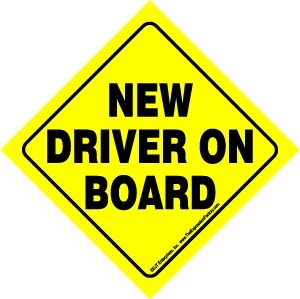 Common Mistakes of New Drivers
Common Mistakes of New Drivers
It’s no secret that insurance rates for teen drivers are high with one in five teens having an accident in their first-year driving. 16- year-olds have higher crash rates than drivers of any other age. There are a variety of factors and situations that provide insight on why new drivers are more accident prone, below are the most common:
- Use of Cell Phones: Young people are now accustomed to having constant access to electronic devices. Simply talking on a cell phone can double the likelihood of an accident as well as slow a young driver’s reaction tremendously. Virginia law prohibits the use of cell phones while driving, regardless if it is hand held or not. You can only use a cell phone for a driver emergency and the vehicle must be lawfully parked or stopped.
- Passengers: The first person in their friend group who receives their license usually takes on the role of chauffeuring their friends. In Virginia if you are under 18, you may only have one passenger under the age of 21 with you unless accompanied by a licensed parent or adult in the front passenger seat. After holding your license for a year, you are allowed to have up to three passengers under the age of 21 if you are traveling to a school-sponsored event, with a licensed driver 21 or older in the front passenger seat, or in case of an emergency. If you only hold a learner’s permit, you may not carry more than one passenger under age 18.
- Nighttime Driving: More than 40% of teen auto deaths occur between the hours of 9 p.m. and 6 a.m. There is less reaction time to see road signs, upcoming curves, or react to other obstacles. States that have implemented nighttime restrictions for teens have reported up to a 60 percent reduction in crashes during the restricted hours. Virginia law prohibits driving from midnight to 4 a.m. under the age of 18 except if are traveling: to or from a place of business where you are employed, an adult supervised school or public organization sponsored event, with a licensed spouse, parent, or other adult in the front passenger seat, and in case of emergency.
In addition to these high-risk situations, new drivers are prone to other mistakes:
- Overconfidence: New drivers are prone to believing they have learned everything they need to know once they receive their license. Making sure a teen is sufficiently experienced in driving on highways, in bumper to bumper traffic, and inclement weather is critical. Practice with proper merging, lane changing, and dealing with heavy traffic should be repeated numerous times with an experienced licensed driver before allowing a teen to drive unsupervised.
- Under Confidence: Some new drivers may experience anxiety and nervousness around being newly able to drive alone. An underconfident driver poses as much as a threat on the road as an overconfident driver. A too-cautious driver presents a hazard to others by driving slower than the flow of traffic and being indecisive when lane changing or merging. Under confidence and indecisiveness can cause a teen driver to overact and overcompensate in situations that an experienced driver may naturally react to and not think twice about, such as a car swerving in and out of travel lanes. Parents or guardians of teen drivers should take notice of the teen’s driving habits and offer suggestions and help to get their teen more confident with being on the road.
- Failure to Use Seatbelts: Tying back to overconfidence, the mentality of knowing everything about driving that some teens possess can foster a sense of being indestructible. If you are driving or in the front seat, regardless of age, you must be properly restrained by a safety belt under Virginia law. In addition, it also requires everyone under the age of 18 to be properly restrained no matter where you are sitting in the car and it is the driver’s responsibility for making sure this happens.
Even with the best training and countless hours of driver education courses and behind the wheel instruction, teens are involved in more accidents at a rate higher than experienced drivers. If your teen is involved in an accident, as a passenger or a driver, don’t hesitate to seek competent legal advice. The experts at ReidGoodwin are always available when you need us. Call 804-415-7800 today for a free consultation.
